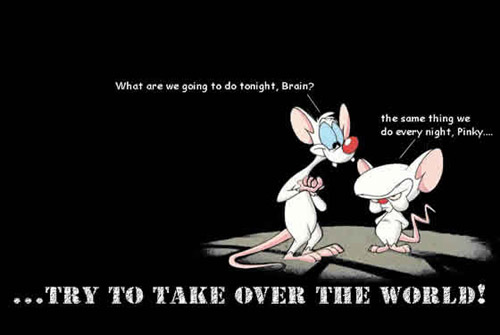My grandfather, whom I never knew as he was a bit older when he became a father, fought in WWI. He was in the trenches for two solid years, only getting brief respites at a staging camp behind the lines. He was a typist and a gunner. He would type orders as the shells rained down upon him and his comrades, while the cannon-shot gas canisters sputtered just outside the trenches (he suffered lung damage from chlorine gas, which is making a comeback in Iraq), and he was so far out there in the 23,000 miles of winding, man-dug trenches (nearly once around the earth's circumference!), no one would venture out to aid the soliders other than the army supply trains (infrequently) and the Salvation Army. The Red Cross wouldn't even go into "no man's land" (another parallel with Iraq). It was total war. Everything that could be shot or dropped on your enemy was: there was no Geneva Convention. The Geneva Convention arose from the aftermath of WWI because there had never been so savage a war, and one fought with such total disregard for life. The "Great War" was supposed to be the war that ended all wars. Well, we know better now, don't we?
On memorial day, when I saw all the pictures of parents and loved ones, faces twisted with grief, in Arlington Cemetary, and saw the newest graves strewn with flowers, teddie bears, and pictures of children, and when I saw pictures of the burials of Iraqis, such as a twenty-year-old man who had been walking home and was shot for no apparent reason by a masked man in a car, I thought of my grandfather and of his (and one of mine) favorite poet, the WWI poet Wilfred Owen.
Owen had been a big booster of the war, like many at home in England, until he became a soldier. He had written poetry before the war, but it was soppy, dreadful stuff. It was only during the war, he came into his voice—a voice that haunts us still. Owen was wounded at least once, recovered in hospital, and was sent back to the front lines. He was killed at the very end of the war; if I remember right, only hours before it officially ended. He left us an invaluable and disturbing collection of war poetry. It seems so much more applicable to the Iraq or Afghanistan war than, let's say, WWII because of the sheer savagery and insanity of it all, and the seeming indifference of the architects of the war for those who are on the front lines, or in the cities and villages of Iraq and Afghanistan. I am going to post below Owen's most popular poem. Oxford University has a database of his works online if you care to read more. Just enter "Wilfred Owen" into google, and it is the second or third entry.
Dulce Et Decorum Est
Bent double, like old beggars under sacks,
Knock-kneed, coughing like hags, we cursed through sludge,
Till on the haunting flares we turned our backs
And towards our distant rest began to trudge.
Men marched asleep. Many had lost their boots
But limped on, blood-shod. All went lame; all blind;
Drunk with fatigue; deaf even to the hoots
Of tired, outstripped Five-Nines that dropped behind.
Gas! Gas! Quick, boys!-An ecstasy of fumbling,
Fitting the clumsy helmets just in time;
But someone still was yelling out and stumbling
And flound'ring like a man in fire or lime...
Dim, through the misty panes and thick green light,
As under a green sea, I saw him drowning.
In all my dreams, before my helpless sight,
He plunges at me, guttering, choking, drowning.
If in some smothering dreams you too could pace
Behind the wagon that we flung him in,
And watch the white eyes writhing in his face,
His hanging face, like a devil's sick of sin;
If you could hear, at every jolt, the blood
Come gargling from the froth-corrupted lungs,
Obscene as cancer, bitter as the cud
Of vile, incurable sores on innocent tongues,-
My friend, you would not tell with such high zest
To children ardent for some desperate glory,
The old Lie: Dulce et decorum est
Pro patria mori.*
* Translated from Latin as “It is sweet and right to die for your country.” These lines are take from an ode by Horace and were often used in support for WWI.



2 Comments:
Ah, Wilfred Owen. A great poet indeed- the volume of his works on me shelf is dirty and dog-eared.
Another WWI poet worth noting is Sigfried Sassoon. He holds the place between Owen and Yeats on my shelf.
Yes, I love Sassoon as well. Between Yeats and Owen is about the best place one could place him literally and figuratively!
Post a Comment
<< Home